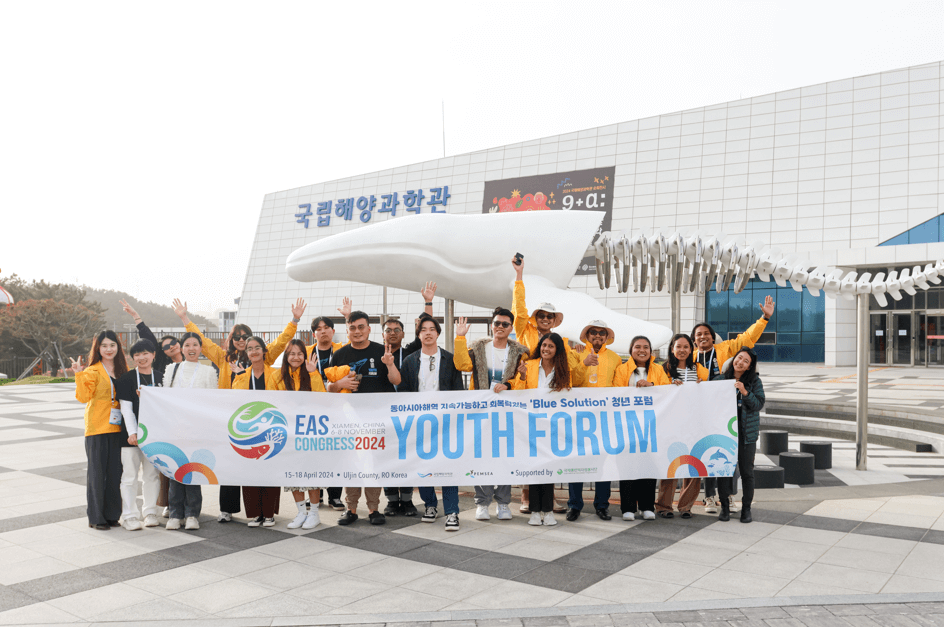Developing River Basin-Coastal Area Sites
Friday, 1 July 2011

Dalian, PR China — Forty-one government officials responsible for managing pollution and assisting technical experts from China, RO Korea, Philippines, Indonesia, DPR Korea and Japan met to discuss "Total Allowable Pollutant Load Allocation in River Basins and Coastal Areas of East Asia" for the 6th Twinning Workshop on on Integrated River Basin and Coastal Area Management (IRBCAM) held on 18-20 May 2011 in Dalian City, PR China. The workshop was locally hosted by PR China's State Oceanic Administration and National Marine Environmental Monitoring Center, with support from PEMSEA, the Korea Maritime Institute (KMI)/PEMSEA Twinning Secretariat, and the Ministry of Land, Transport and Maritime Affairs (MLTM) of RO Korea.
The 6th Twinning Workshop is marked by the dominance of presentations from developing IRBCAM sites showing the on-site application of TPL tools initially shared by advanced sites.
The workshop featured technical sessions on: (1) estimation of total pollution load; (2) allocation of pollution load/reduction targets and planning; and (3) actual implementation of pollution reduction with presentations from Bohai Sea, Manila Bay, Masan Bay and Jakarta Bay. Having the various sites present on common specific topics facilitated understanding of similarities and differences, sharing of lessons, and convergence in conclusions. In addition, Jiulong River-Xiamen Bay's strategic action plan for ecosystem-based management and a Japan-China cooperative project on total emission control emphasizing decentralized domestic wastewater treatment for rural China were also featured.
The workshop agreed that Total Pollution Load (TPL) management facilitated ecosystem-based management linking upstream, downstream freshwater, and marine water use, and is a more effective way of achieving water quality targets (e.g., fishable and swimmable waters) than solely effluent-concentration-based regulation. However, in addition to the technical elements of TPL management, the workshop also emphasized the necessity of good governance including stakeholder understanding and behavior change; political support and leadership; adequate financial, technical and management capacity; an effective regulatory and incentive/disincentive system; and mutually supporting roles of national government, local governments, industries, households, and water companies/treatment plants; in order to achieve equitable and sustainable solutions.
The workshop concluded with the participants desiring that: (1) lessons learned/good practices shared by the twinning sites over the years be synthesized for broader use; (2) future twinning sharing focus on IRBCAM issues raised such as institutional and governance arrangements and social consensus, water supply management, and natural hazards; and (3) more sites participate in the twinning network.
The twinning network and workshops aim to share good practices and experiences, build political support, and develop capacity in integrated river basin and coastal area management (IRBCAM) through north-south and south-south cooperation. The network began with IRBCAM programs of Bohai Sea (PR China), Manila Bay (Philippines), Jakarta Bay (Indonesia), Masan-Chinhae Bay (RO Korea), Seto Inland Sea (Japan) and Chesapeake Bay (USA).
The Twinning Network's workshops on IRBCAM began in 2005 and has been held annually since. The past few years have witnessed the progression from discussions on concepts, policy and partnerships; to sharing of good practices from advanced IRBCAM programs and management frameworks of developing IRBCAM programs; to formal establishment of the Twinning Secretariat; to focus on pollution reduction and training in TPL management.



